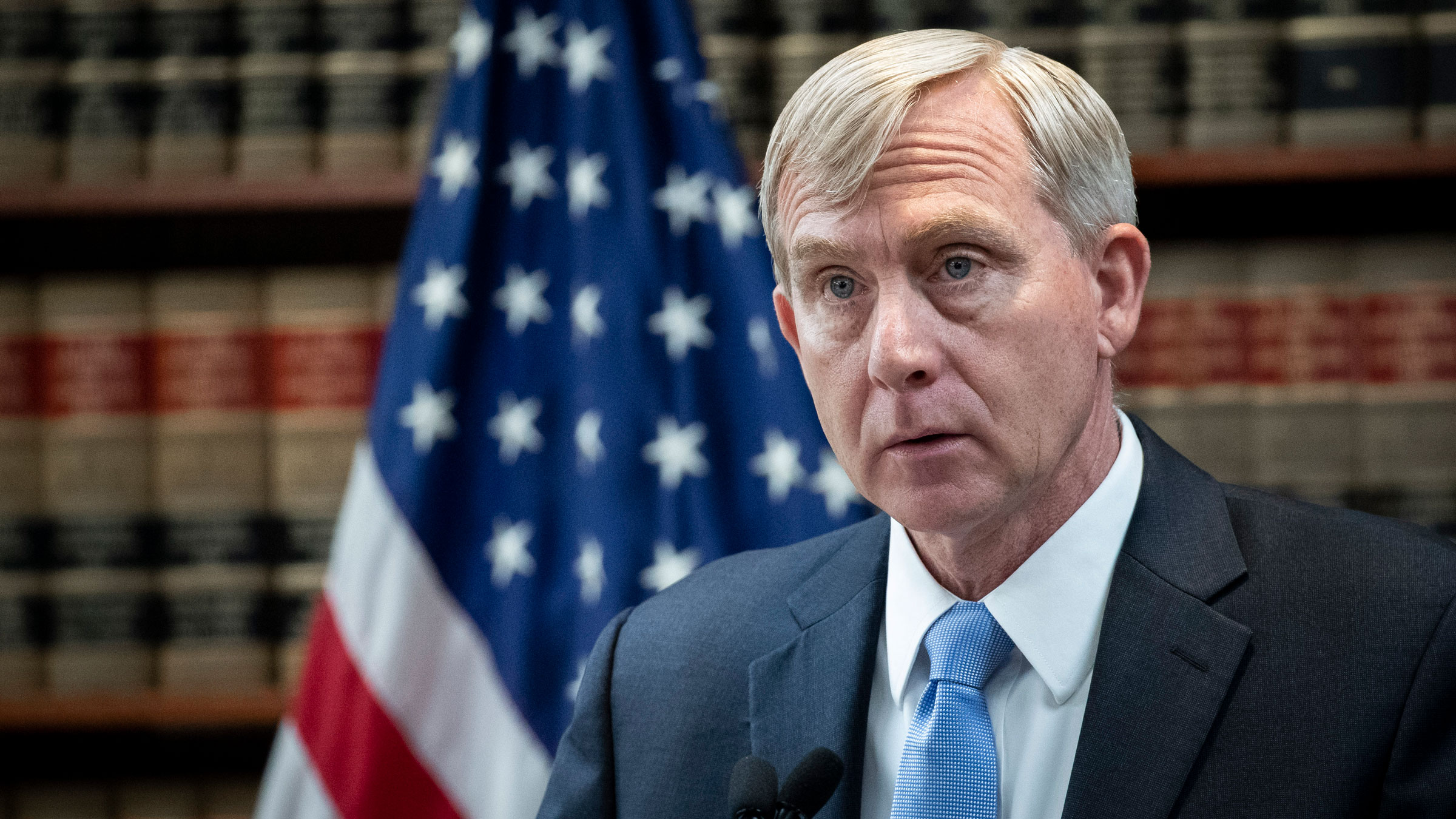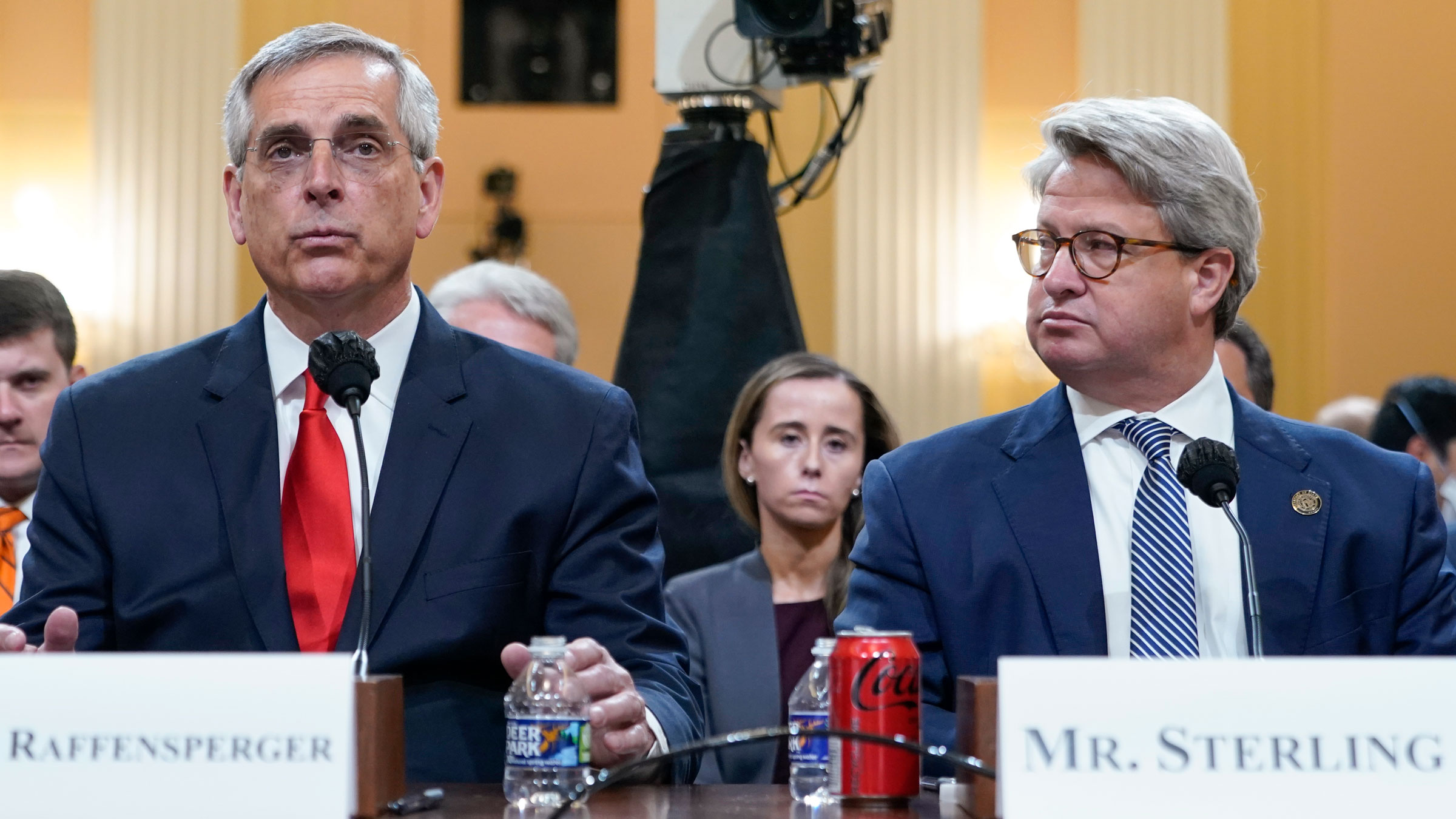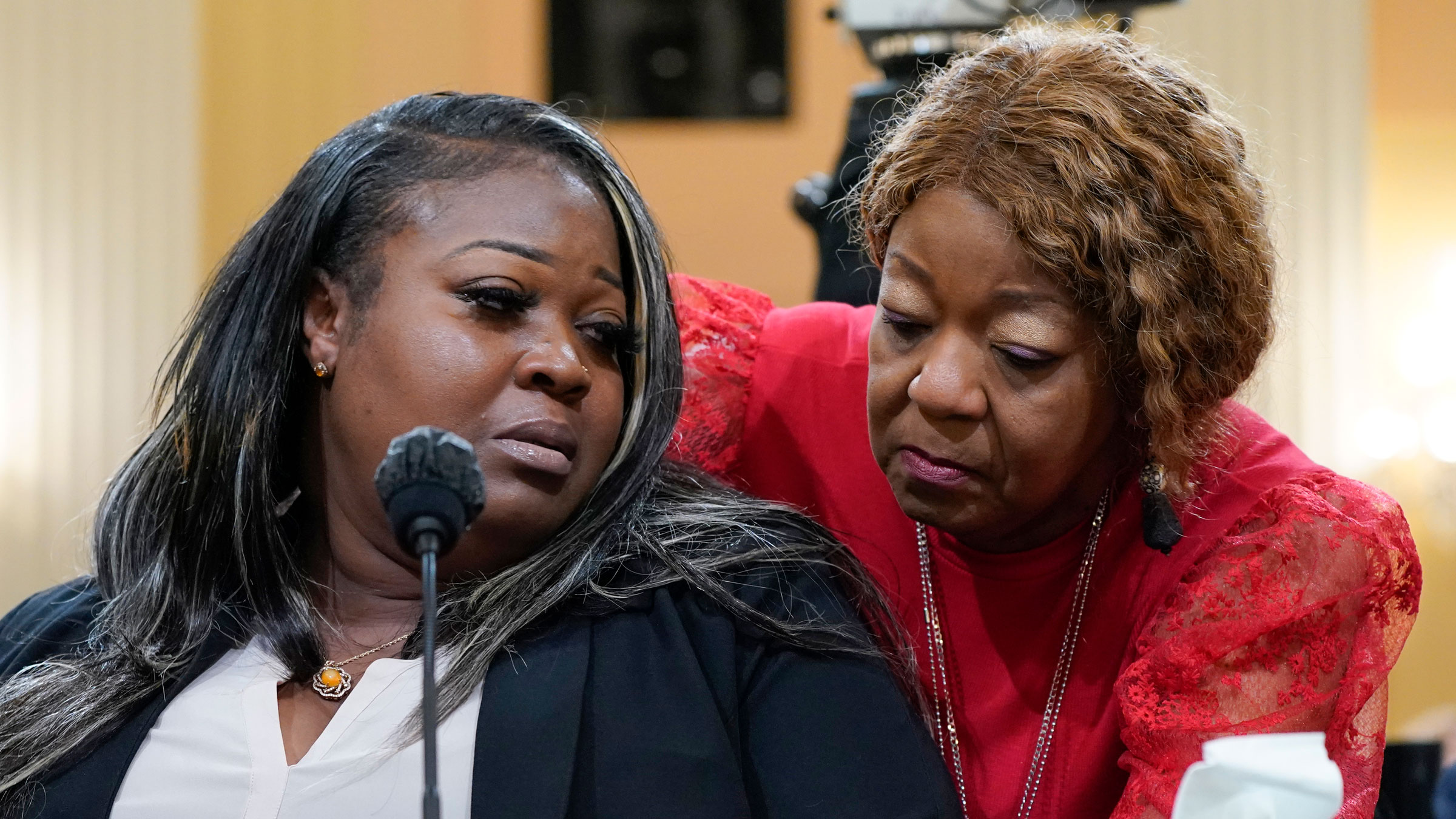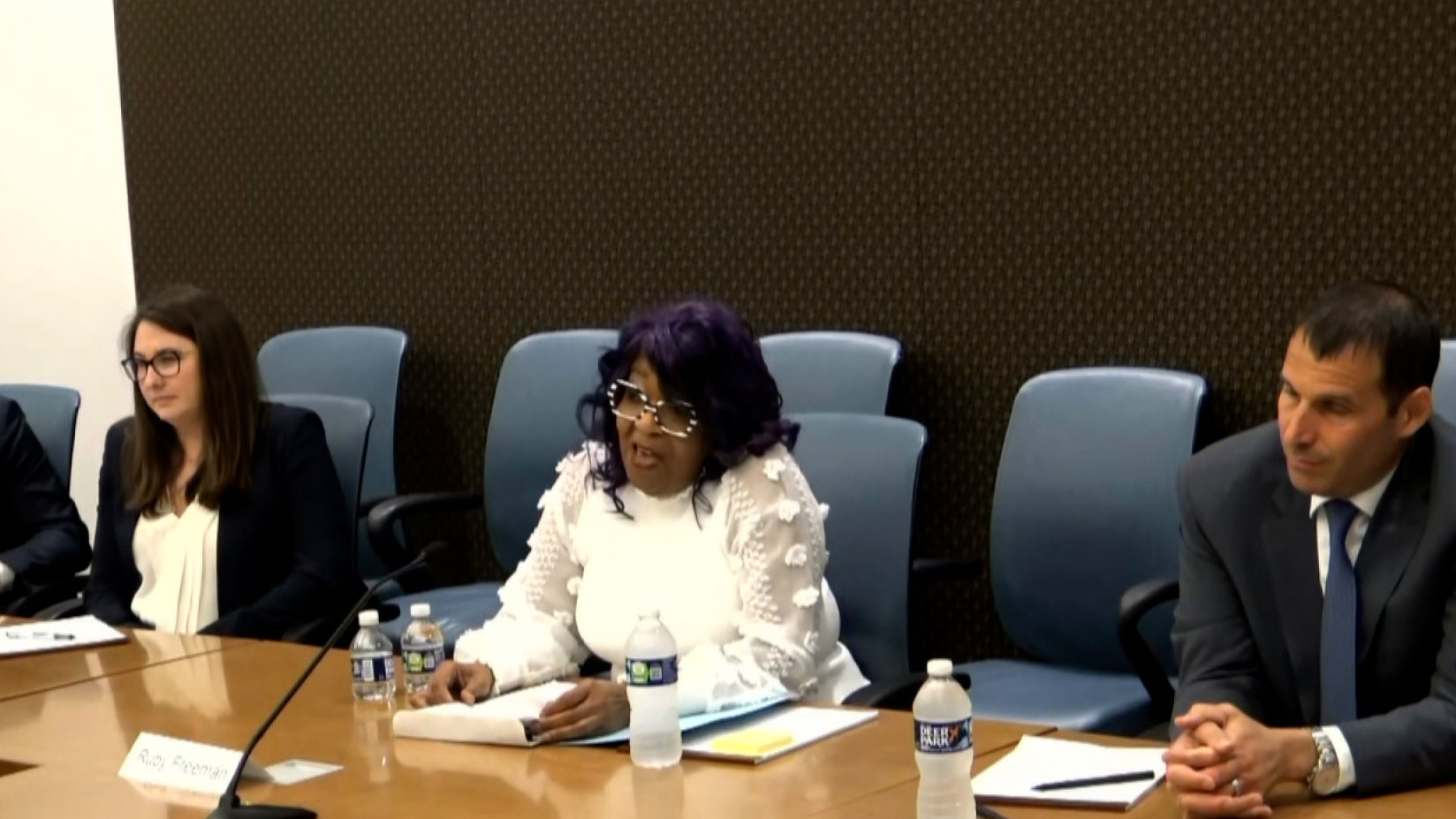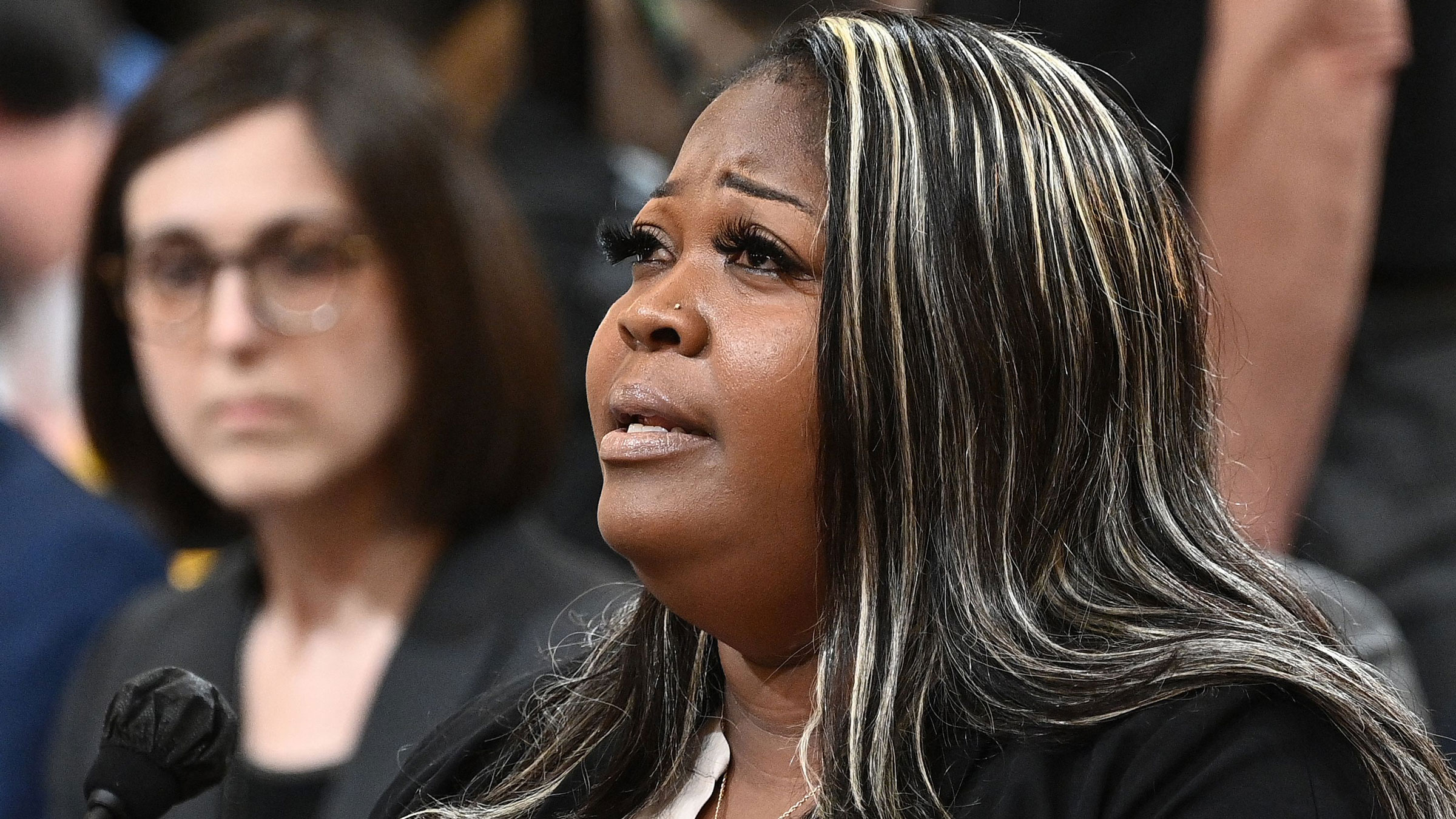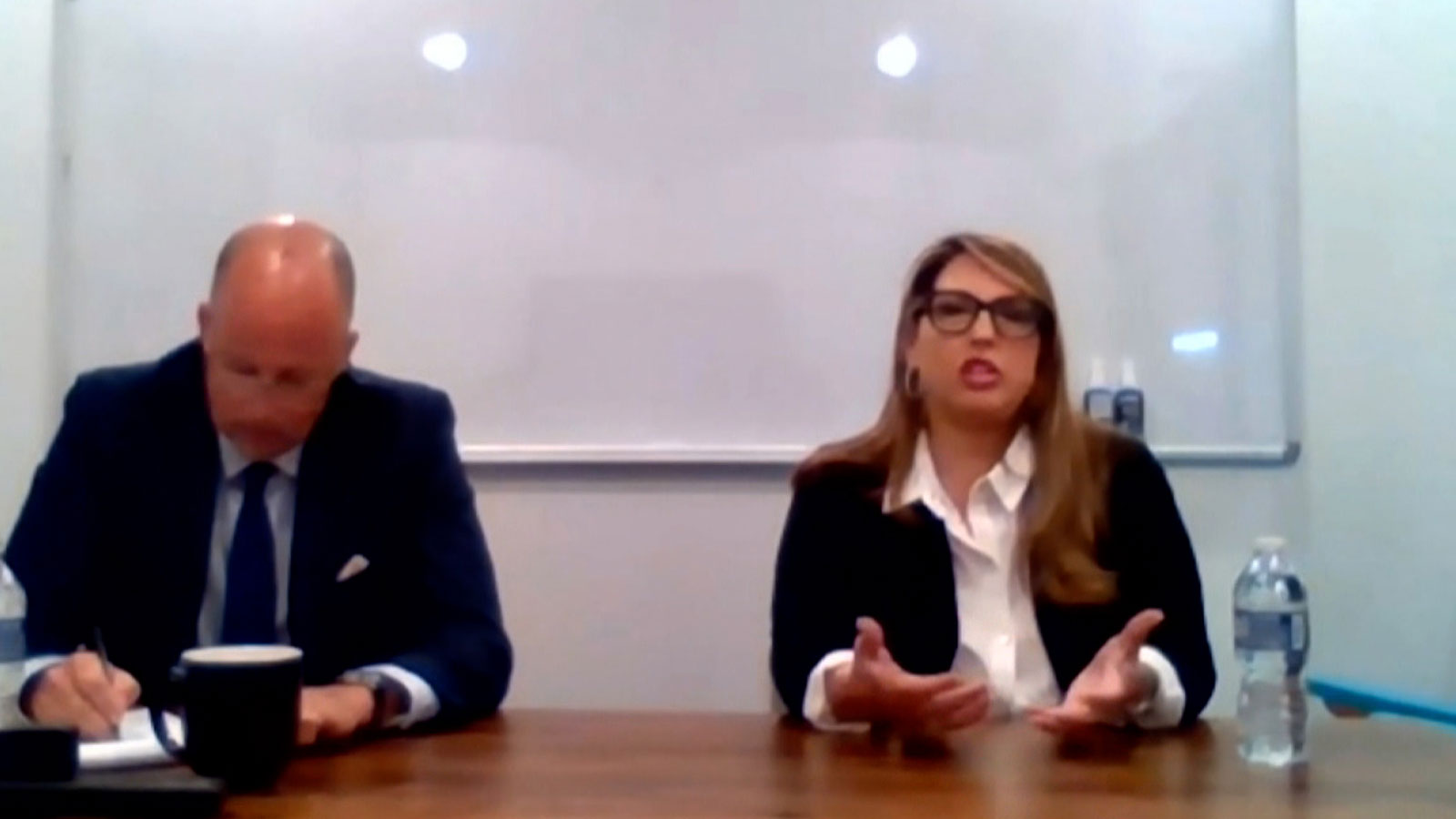A video produced by the House Select Committee detailed former President Donald Trump and his team’s efforts to sway election officials and intimidate election workers following President Biden’s 2020 election win.
Here's a look at some of the details the committee laid out:
- Protests outside officials' homes: In a video played by the committee, protesters stood outside the home of Michigan Secretary of State Jocelyn Benson calling her a “tyrant and a felon,” as she was putting her child to sleep. She described to the committee, via audio recording, her fear for her family’s safety.
- Personal phone numbers posted online: In late November 2020, Trump invited delegations from Michigan and Pennsylvania to the White House. After Michigan State Senate Majority Leader Mike Shirkey, a Republican, told Trump that he would not break the law to keep Trump in office, he said Trump posted Shirkey’s personal phone number for his millions of followers on Facebook, urging them to contact him and demand he decertify Michigan’s election results. Shirkey said he received "just shy of 4,000 text messages over the short period of time, calling to take action.”
- Daily phone calls: Following his refusal to contest his state’s election results, Pennsylvania House Speaker Brian Cutler said he received daily phone calls from former Trump lawyer’s Mayor Rudy Giuliani and Jenna Lewis asking to discuss the election. Cutler said he asked his lawyers to tell the pair to stop calling, saying their efforts were inappropriate: they did not stop. One month later, long-time Trump ally Steve Bannon announced a protest against Cutler at his home and offices. Cutler said his then-15-year-old son was home alone when the first protest happened. He said that his personal information was leaked online and received so many calls to his home phone, that he had to disconnect it because messages were filling up so fast at all hours of the night. The select committee showed an anonymous voice mail Cutler received saying that the caller was outside his home.
- Millions of dollars in ads: According to the committee, the Trump campaign spent millions of dollars on ads pushing election fraud claims and urging Americans to call their legislators and demand they inspect voting machines.
- "20,000 emails and tens of thousands of voicemails and texts": Arizona Republican House Speaker Rusty Bowers described to the committee the harassment he and his family faced after refusing to decertify his state’s election results. Bowers said he and his team received “20,000 emails and tens of thousands of voicemails and texts.” At home, Bowers’ Saturdays were filled with protests by various groups disrupting the neighborhood with trucks playing videos claiming he was a pedophile and pervert. He recalled a confrontation between a protester with a gun who was vocally threatening his neighbor. Bowers detailed his family’s strength during this time, especially that of his wife and then “gravely-ill” daughter.
- Death threats and a home break in: The committee played excerpts of a Jan. 2, 2021, phone call obtained by CNN between Georgia Secretary of State Brad Raffensperger and Trump where the former President urged Raffensperger to “find” votes to overturn the election. Raffensperger refused, claiming Georgia’s election results were accurate. Following this conversation, he said both he and his wife were doxed and received death threats, he told the committee. Additionally, he said his widowed daughter-in-law’s home was broken into while she was alone with her two young children.
- "I’ve lost my name, I’ve lost my reputation, I’ve lost my sense of security": Former Fulton County, Georgia, election workers Wandrea “Shaye” Moss and her mother Ruby Freeman were specifically targeted by Trump’s team to push false allegations of voter fraud. The pair worked the 2020 presidential election and were named 18 times by Trump in the call made to Raffensperger. In that call, Trump called Freeman a “professional vote scammer and a hustler." Moss detailed the harassment her grandmother faced as well, including a home invasion where people were looking for Moss and Freeman, claiming to be making a citizen’s arrest. In a video testimony to the committee, Freeman said, “I’ve lost my name, I’ve lost my reputation, I’ve lost my sense of security.” Prior to Jan. 6, the FBI advised Freeman to leave her home for safety — she was gone for two months.
